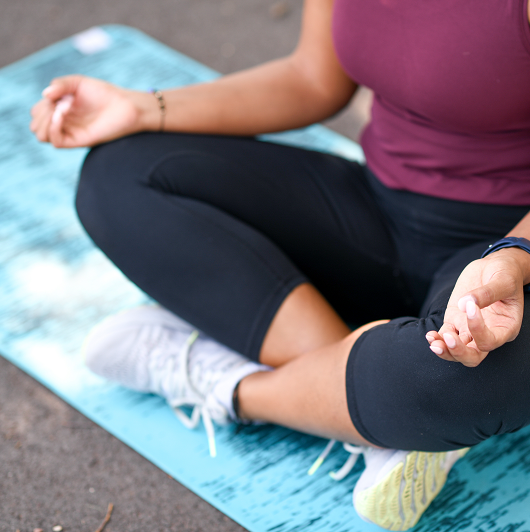Managing Addiction Throughout the Holidays

December 28, 2022
This time of year, people typically participate in an abundance of celebrations to get into the holiday spirit.
For many, these festivities and extra opportunities for socializing are part of their annual routine. But for approximately 14.5 million people in the U.S. living with substance use disorder, this is a time full of temptations and emotional triggers to navigate, as they face the decision to attend get-togethers with alcohol and non-sober guests.
The holiday season is often the convergence of many factors related to stress and anxiety at one time. The influx of viral illnesses, financial difficulties or economic uncertainty, family friction and other stressors continue to lurk – and while these are concerns or triggers that occur throughout the year – they can be amplified along with an extra sense of isolation during holidays.
“Not everyone experiences a picture-perfect holiday movie they see on TV or Instagram,” says Justin Kei, M.D., who specializes in adult psychiatry and addiction medicine at Hackensack Meridian Health Medical Group. “Most expectations for perfection and harmony are unrealistic, and the pressure to achieve those puts a tremendous burden on your physical and mental health. Comparing your life or family to what you see in the media or internet can be harmful, and in some cases lead to self-medication.”
But that doesn’t mean someone living with a substance use disorder needs to decline all party invitations.
“Regardless of the holiday one is celebrating, we want to focus on gratitude for what we have and can share with others. If people can find that in a way that doesn't compete with their recovery, that can be nice,” Dr. Kei says.
He recommends these four steps.
1. Have a Plan
Take stock of your triggers beforehand, knowing they will come up. What is the plan when someone offers you a drink? What will you do if they continue to encourage it, even when you decline?
“The solution is to think ahead,” Dr. Kei says. “Practice so you aren't caught off guard and have a plan of action to say ‘no.’”
2. Have Alternatives
Just because you aren’t partaking in alcohol doesn’t mean you can’t enjoy other treats. Sip on non-alcoholic beverages and mindfully nosh on snacks. Keep busy, so there isn’t the impulse or pressure to have a drink in your hand.
If you start to feel like you’re missing out, Dr. Kei reminds people that “just because everyone else is doing it doesn't make it healthy for their body.”
3. Know Your Support System
Sharing that you’re in recovery is your choice, but Dr. Kei recommends staying close to those who can help with accountability and be in your corner of support.
“That takes a degree of self-disclosure and trust,” Dr. Kei says. “But sometimes that self-disclosure and decreasing stigma may help in the right situations.”
4. Be Gentle with Yourself
Dr. Kei says to remember that addiction is a chronic illness like asthma or other disease. While a relapse can happen, “it doesn't mean that everything you've worked through up until then was for nothing or that it’s not worthwhile to continue,” he says.
Have you relapsed? Dr. Kei suggests connecting with your trusted support. Whether that's a sponsor, friend, etc., reach out to them and get any guilt or strong emotions off your chest to avoid a spiral.
“At that moment, it's important to communicate with people who can provide grounding. Sometimes it's hard to get through the distress, so have those supportive anchors before things get out of hand. Recovery and maintaining sobriety is a lifetime commitment. While not everyone succeeds the first time, or may stumble along the way, anyone willing to take on that challenge will succeed one day, and we can all play a role in supporting someone we know,” he says.
Next Steps & Resources:
The material provided through HealthU is intended to be used as general information only and should not replace the advice of your physician. Always consult your physician for individual care.






